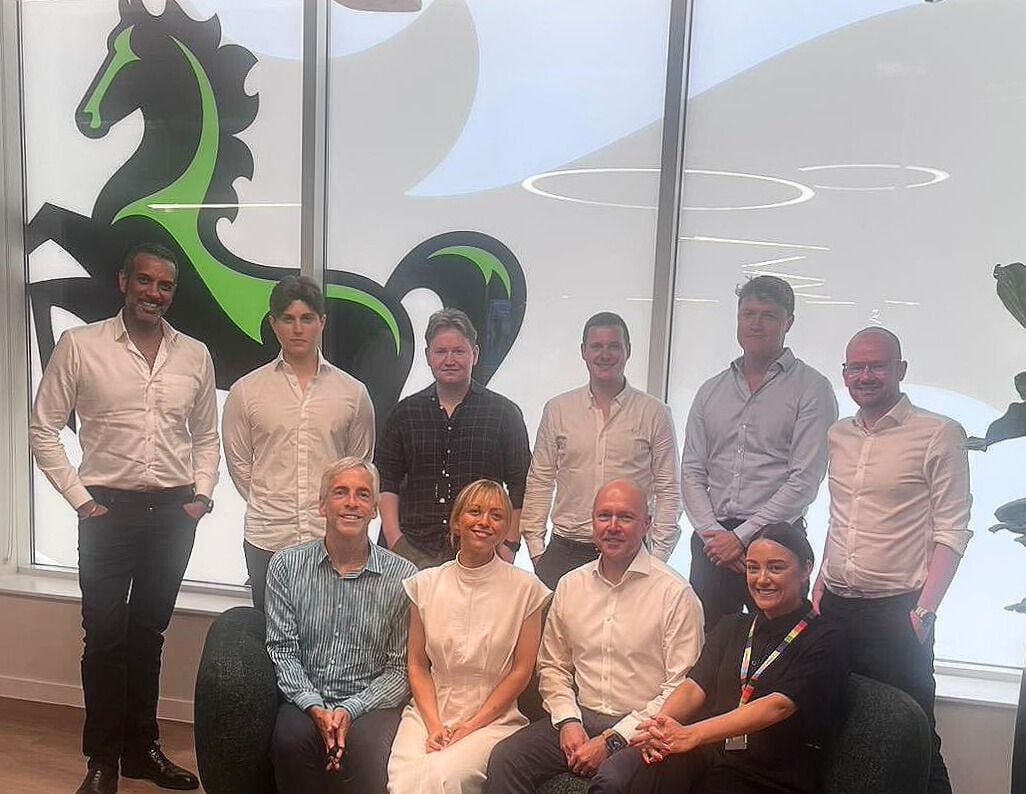Despite the barriers presented by Brexit, firms still identity Europe as a fruitful market for expansion, but the reams of red tape have motivated many startups to broaden their reach globally.
This was a key topic of discussion for participants invited to the latest UKTN roundtable, hosted at Lloyds’ HQ in London. Great minds from across the tech and investment sector were invited to explore the opportunities and challenges of expanding into global markets in today’s interconnected landscape.
 David Butcher, head of fintech and cyber at London & Partners, noted that while Europe remains significant for UK tech firms – thanks to its shared values and sheer size – many companies are now looking at a more diversified approach to their international expansion.
David Butcher, head of fintech and cyber at London & Partners, noted that while Europe remains significant for UK tech firms – thanks to its shared values and sheer size – many companies are now looking at a more diversified approach to their international expansion.
“While North America has always been important, we are now seeing more expansion in APAC countries and the Middle East,” he said.
“India is also becoming increasingly important, leveraging the recent free trade agreements.”
Russ Shaw, founder of Global Tech Advocates, explains how geopolitical circumstances had a key role in international scaling. “Brexit has prompted companies to look at the rest of the world as an opportunity, not just the European Union, which was the natural place to expand to,” he said.
Once target regions have been identified, companies are then faced with how to approach integration into local markets. Shaw cited the Department for Business and Trade as a useful springboard, while the growth of UK businesses is London & Partner’s bailiwick. Global Tech Advocates also has a Launch Pad platform to help tech startups scale internationally.
But while frameworks are a solid entry point, trusted relationships on the ground are also key.
Sam Baldwin, sector director, commercial banking coverage at Lloyds, has experience in managing a platform to support scaleup businesses looking to expand globally into new markets. He recalled the feedback for the most useful elements were the cultural guidance pages.
“It’s about knowing where to start in a new market, how to conduct yourself and how to conduct business,” he said.
One of TradingView’s growth strategies is the use of integrated brokers across the globe.
“These brokers are the hand that we receive in those markets,” Maksim Shymanovich, senior manager, product and international growth at the social trading network, explained. “They conduct the marketing on our behalf by integrating into our platform. We have brokers across all continents, but we don’t have a marketing department.”
James Hutchinson, director of business development of the EMEA and APAC regions at Stavtar, echoed the importance of relationships in driving growth, particularly in B2B markets.
“There is a difference between retail markets and professional services, and how you approach them,” he said.
“Retail markets use social media and similar avenues, while in B2B, I think it is important to recognise that cold calling is essentially dead. Relationships are useful; every industry will use consultants and lawyers who are great contacts to have.”
Paul Kharbanda, who leads the foreign exchange sales business at Lloyds Banking Group, used a motorsport analogy to illustrate how personalisation should work in tandem with technology.
“It is the driver of the innovative F1 car that is going to get you to the finish line unscathed. It’s about the champions. The individuals that help with navigation.”
Steve Harris, head of the tech sector at Lloyds, summarised that applying technology to relationship building is a shrewd move.
“Using your company’s data and applying your technology to identify the best partners to support rapid scale, and then creating relationships with those people, is a smart move,” he said. “You then have a perfect combination that allows exponential growth and rapid scale up without marketing spend.”
If you are a business looking for support with your international growth ambitions, please get in touch to find out how Lloyds can assist.










